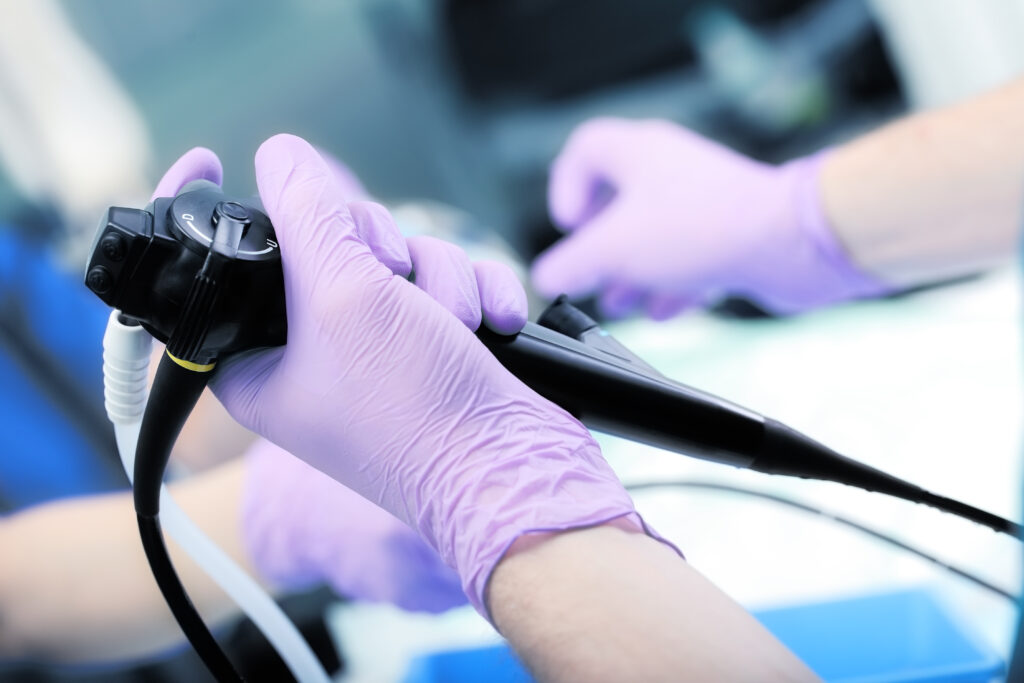
Uses
Endoscopic Retrograde Cholangiopancreatography (ERCP) is a procedure to examine and treat diseases of the drainage system of the liver and gall bladder (bile ducts) and the pancreas (pancreatic duct).
This procedure can be used to diagnose and treat problems such as gallstones trapped in the bile ducts, benign or cancerous strictures (a narrowing) of the ducts, and complications of pancreatic inflammation.
Procedure
After the patient is deeply sedated, the provider passes a flexible tube (endoscope) through the mouth, esophagus, and stomach, and into the beginning of the small intestine called the duodenum.
At this location, the bile and pancreatic ducts drain into the intestine through a small nipple-like opening called the papilla. A plastic tube called a catheter is then passed through the scope, into the papilla and up into either the bile duct or pancreatic duct. Contrast material is then injected into the ducts and images are obtained using an x-ray machine.
Although generally safe, ERCP can cause complications such as pancreatitis, infection, and intestinal perforation or bleeding.



